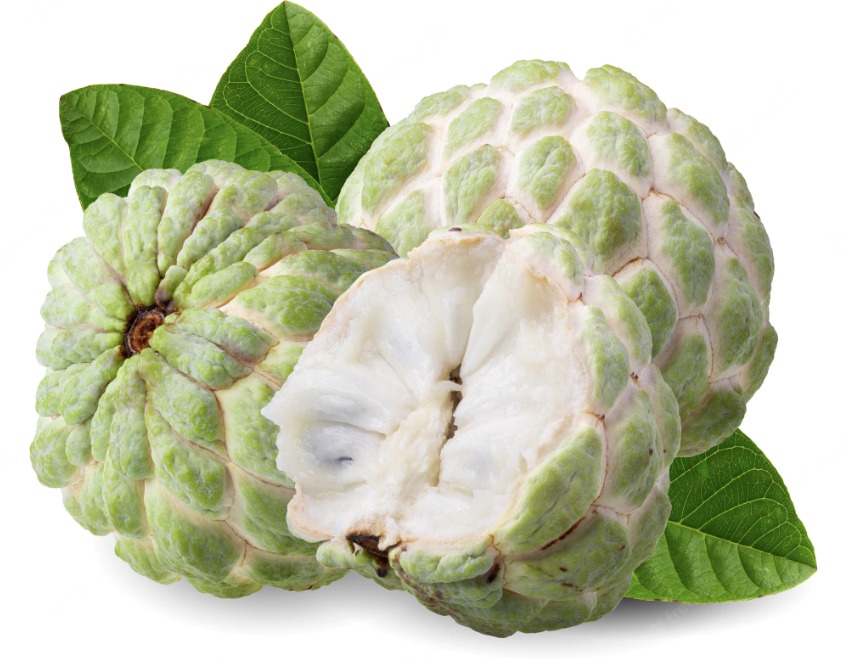Custard apple, a creamy, sweet, and delicious tropical fruit, is beloved by many for its irresistible flavor and impressive nutritional profile. However, not everyone should indulge in this fruit. Despite its numerous health benefits, there are certain groups of people who should steer clear of custard apples due to potential health risks. Let’s explore the benefits of custard apple, its nutritional value, and why it may not be suitable for everyone.

Nutritional Value of Custard Apple
Custard apple, a member of the Annonaceae family, is packed with essential nutrients. This green, heart-shaped fruit is filled with creamy, soft flesh and is a powerhouse of vitamins and minerals. According to Vinmec General Hospital, 100 grams of custard apple provides around 101 calories, making it energy-dense but free of harmful fats. It contains:
- Vitamin C: A powerful antioxidant that boosts immunity and protects cells.
- Vitamin B6: Essential for brain health and energy production.
- Magnesium and Iron: Crucial for maintaining healthy blood flow and oxygen levels.
- Dietary Fiber: Promotes good digestion and regulates cholesterol.
Health Benefits of Custard Apple
- Boosts Immunity
Thanks to its high vitamin C content, custard apple helps strengthen the immune system. By fighting off free radicals and harmful pathogens, it protects the body from infections and chronic diseases. - Promotes Heart Health
The sodium and potassium balance in custard apple plays a key role in maintaining healthy blood pressure and heart function. Its antioxidants help prevent the formation of harmful cholesterol, thereby supporting overall cardiovascular health. - Improves Digestive Health
With its rich dietary fiber content, custard apple can effectively combat constipation and improve bowel movement. It also protects the intestinal lining and reduces the risk of colon cancer by promoting a healthy digestive tract. - Anti-Cancer Properties
Custard apple contains powerful antioxidants like polyphenols, asimicin, and bullatacinare, which work to prevent oxidative stress and inhibit the growth of cancerous cells. Regular consumption can provide protection against several cancers. - Enhances Eye Health
Loaded with vitamin A, vitamin C, and riboflavin, custard apple supports vision and protects the eyes from oxidative damage. It helps maintain clear, healthy vision and prevents eye-related issues like cataracts.
Who Should Avoid Custard Apple?

While custard apples are nutritious and beneficial, they contain small amounts of natural toxins and high sugar content that can pose risks to certain individuals. Here are the groups of people who should limit or avoid this fruit:
- People with Diabetes
Custard apples are naturally high in sugar, which can cause a spike in blood glucose levels. Individuals with diabetes or those at risk of developing the condition should avoid eating this fruit excessively. - People with Internal Heat or Skin Issues
Those prone to acne, prickly heat, or styes should limit custard apple consumption. The fruit’s natural heat-inducing properties may exacerbate these conditions. If eaten, balance it out by drinking plenty of water and consuming cooling foods like green vegetables. - Individuals with Neurological Conditions
Custard apples, like other fruits in the soursop family, contain a compound called annonacin. Studies in tropical regions suggest that prolonged consumption of annonacin may increase the risk of neurological disorders, including Parkinson’s disease. People with neurological issues or a family history of such conditions should avoid this fruit. - People Sensitive to Toxins in the Fruit
Although custard apples are generally safe, they do contain small amounts of naturally occurring toxins. Overconsumption may lead to unwanted effects, particularly for those with weak immune systems or underlying health concerns.
Final Thoughts
Custard apple is undoubtedly a nutrient-rich fruit with numerous health benefits, from boosting immunity to promoting heart and digestive health. However, it’s not for everyone. Individuals with diabetes, skin conditions, or neurological concerns should exercise caution and consult their healthcare provider before consuming this fruit.
By understanding the benefits and risks of custard apple, you can make informed decisions about incorporating it into your diet. If you fall into any of the groups mentioned, it’s best to stay away from this otherwise nutritious fruit. After all, when it comes to health, prevention is always better than cure.





